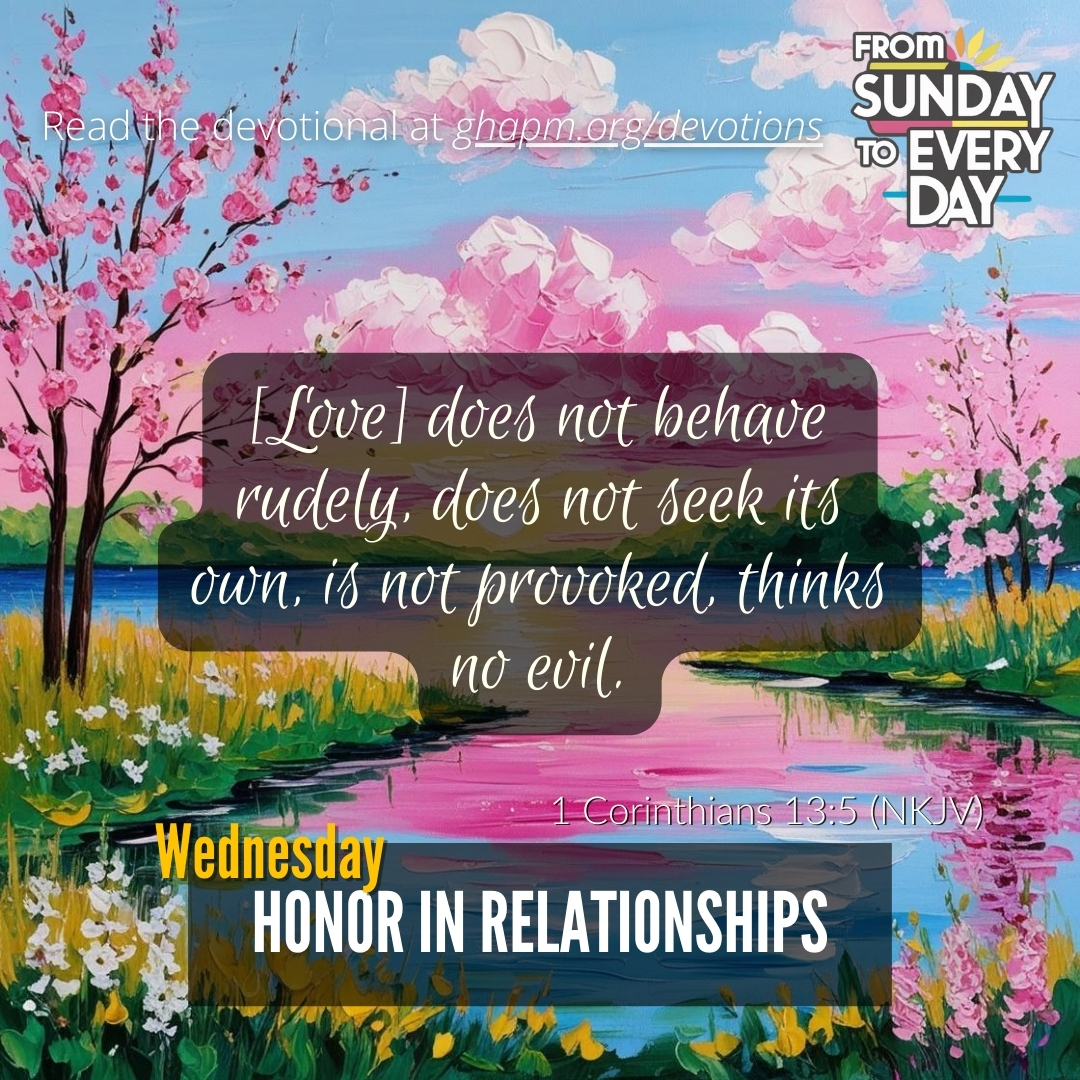Anchor Verse:
1 Corinthians 13:5 (NKJV) “[Love] does not behave rudely, does not seek its own, is not provoked, thinks no evil.”
In a Nutshell:
Pastor Shantel taught that biblical love honors others, puts their needs first, and responds with patience rather than anger – the opposite of self-centered living.
Unpacking the Word:
When love takes root in our hearts, it dramatically changes how we treat others. As we continue exploring 1 Corinthians 13, we see that true love manifests in honorable behavior, selflessness, emotional control, and gracious thinking. These qualities stand in stark contrast to our natural tendencies toward self-centeredness.
Love “does not behave rudely.” This isn’t about knowing which fork to use at dinner – it’s about treating others with dignity and respect. When pride fills our hearts, we begin to dishonor people, treating them as less important than ourselves. But biblical love sees the inherent worth in every person as someone created in God’s image. This was especially important in the diverse Corinthian church, where social class differences were causing division even during communion. Real love crosses these man-made boundaries.
Love “does not seek its own.” Selfishness is our default setting, but God’s love transforms us to put others first. This doesn’t mean we never care for ourselves, but rather that we don’t insist on our own way at others’ expense. Jesus modeled this perfectly, setting aside His divine privileges to serve humanity. When we follow His example, we create unity rather than division in our relationships.
Love “is not provoked.” The Greek word here indicates a quick-tempered response, easily triggered anger. Patient love gives us space to respond thoughtfully rather than react emotionally. This doesn’t mean we never feel anger, but that we don’t let it control our actions. As Pastor Shantel noted, when we’re patient, we can respond with kindness even in frustrating situations.
Love “thinks no evil.” This literally means not keeping a record of wrongs. Love doesn’t maintain a mental ledger of offenses to be used as ammunition later. Instead, it actively chooses to forgive and move forward in relationship. This quality is essential for long-term relationships, as grudges poison the soil where love should grow.
These expressions of love create a virtuous cycle in our relationships. As we honor others, put their needs alongside our own, control our emotions, and think graciously about them, we cultivate deeper connections that reflect God’s heart.
Pause and Reflect:
- In which relationships do you find it most difficult to honor the other person, and why?
- What triggers tend to provoke quick anger in you, and how might patience help you respond differently?
- Are you keeping mental records of wrongs in any relationships? What would it look like to truly let these go?
Faith in Action:
- Identify one person you’ve been treating with less honor than they deserve, and make a specific plan to show them respect and value this week.
- Practice the “pause principle” when you feel provoked – take a deep breath and wait 10 seconds before responding in a heated situation.
- If you’ve been keeping a mental record of someone’s wrongs, write them down on paper, pray over them, then physically tear up the paper as a symbol of releasing those offenses.
A Moment With God:
Father, show me where pride has caused me to dishonor others or put my needs first. Give me Your heart of love that values others highly, responds with patience, and refuses to keep records of wrongs. Transform my relationships to reflect Your character.
We encourage you to use the comments to share your most significant takeaway from this week’s devotionals, how you’ve been challenged, and what God is revealing to you about your spiritual journey.



Leave a Reply